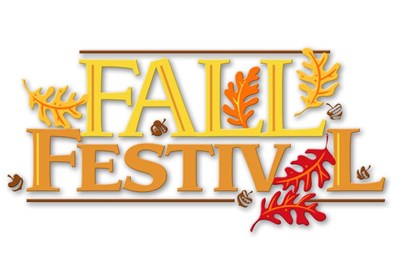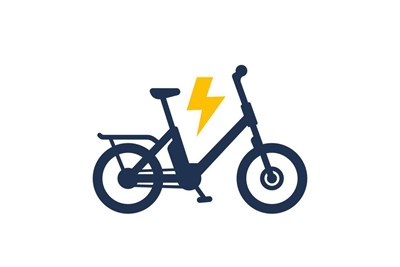ACCESS 2026 Montgomery County's Household Hazardous Waste Events
ACCESS 2026 SEPA-Regional Household Hazardous Waste Events
OTHER RECYCLING INFO FROM MONTGOMERY COUNTY:
ELECTRONIC AND TEXTILE WASTE
Montgomery County has informed us that The Retrievr pickup service for recycling clothing and electronics has been discontinued by the vendor. They do now have the Goodwill Keystone stores in MontCo which are accepting electronics for reuse or recycling as well as clothing and household items.
Please refer to the NEWS item on this website titled "Goodwill Recycling" for additional information on this service.
Tires
-Montgomery County does not hold tire collection events. There are plenty of outlets for tire disposal as tire retailers usually accept used tires for a fee, see list at https://www.montcopa.org/2021/Tires
If a resident has a large number of tires or non-standard tires to dispose of, they should contact our local tire recycling company:
Emanuel Tire of PA
1304 Conshohocken Rd.
Conshohocken, PA 19428
Phone: 610-277-6670
Recycling News
Not All Types of Recycling Were Created Equal (But They Are All Important)
Many people wonder what happens to the materials that they place in their recycling bin. There are three main types of recycling that post-consumer materials can undergo. Each has specific advantages and end products.
Primary recycling, often referred to as “closed loop recycling”, is when recyclable materials are mechanically processed to create a product that serves a similar function. For example, a post-consumer plastic bottle can be mechanically processed to create a new plastic bottle. This bottle has similar strength and performance characteristics as the original bottle. Some materials, such as aluminum and glass, can be recycled in this closed loop system an infinite amount of times. No matter how many times these materials are recycled; their material quality will not decrease. A glass bottle made with glass that has been recycled 20 times will perform just as well as a bottle made of new glass.
The quality of other materials, such as paper and plastic, decreases each time they are recycled. The strength of paper comes from the tangling of pulp fibers. Each time a paper product is recycled, these fibers become shorter, until they become so short they are unable to be used to create new paper. The EPA estimates that paper can be recycled a maximum of five to seven times. Plastic recycling fares worse. The polymers that make up plastics also are shortened each time the material is recycled, and it is estimated that plastic can only be recycled one to two times before the quality of the material is diminished.
This is where secondary recycling comes in. Secondary recycling is still a mechanical recycling process, but it uses recycled materials to make a new product. This new product typically does not have the same physical demands as the original product and is often less recyclable. Despite the decrease in recyclability, this is an important process to minimize the use of virgin resources and to help divert less recyclable materials such as plastic from landfills. An example of secondary recycling is plastic bottles being turned into polyester.
The third type of recycling is tertiary recycling. In tertiary recycling, recycled materials are used as a feedstock in a process to create chemicals and fuels. These chemicals can then be used to create new materials. This type of recycling typically uses the most energy, costs more, and can have the same negative environmental impacts of producing brand new materials. The benefits are reducing waste that is landfilled and minimizing new resources that are used to create chemicals. An example of tertiary recycling is the glycolysis of PET plastic into diols and dimethyl terephthalate to make virgin PET plastic.
Municipal and state regulations require that residents, commercial establishments and non-residential establishments recycle all recyclable materials. Commonly recycled materials include paper, plastic, glass and metal. You should check with your hauler for a complete list of acceptable recyclable materials.
Recycling is Required
Municipal and state regulations require that residents, commercial establishments and non-residential establishments recycle all recyclable materials. Commonly recycled materials included:
- Paper - newspaper, office/copy paper, glossy paper, color paper, cardboard, junk mail, phone books, cereal/cracker boxes
- Plastic - bottles and jugs No. 1-7 (Please contact your local trash hauler to determine what numbers they recycle)
- Glass - clear, green and brown containers
- Metal - aluminum, steel, tin, and bi-metal cans and containers
You should check with your hauler for a complete list of acceptable recyclable materials.
Contaminated Recycle Materials
Contaminated recycling materials cannot be recycled and usually end of going to a landfill. Here is a list of contaminants that make recycle non-recyclable:
- Plastic Bags: Do not place your recycle materials in a plastic bag. Plastic bags cannot be recycled. The recycler will either waste time removing the plastic bag or worst, discard the bang and its contents and send it to a landfill.
- Food Wastes: Uncleaned containers with leftover food wastes cannot be recycled. Containers contaminated with food wastes will be sent to a landfill. You need to wash food containers and remove all of the food before placing the containers into your recycle bin.
- Bright Colored Paper: In general, bright colored paper should not be recycled.
- Frozen Food Containers: The coating on frozen food containers make them non-recyclable.
- Shredded Paper: Shredded paper should not be placed in your recycle bin.
- Caps and Tops to Bottles, Jars and Containers: Caps and tops are not recyclable; throw these in the trash, not the recycle bin.
We all want to maximize our recycling efforts, but we need to recycle the correct materials in the correct manner. Otherwise, we mess up the recycling facility and much of our "recycled waste" ends up in a landfill. You should check with your hauler if you have any questions about what materials can be recycled.


